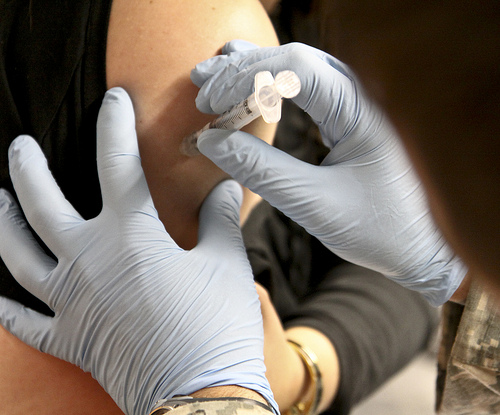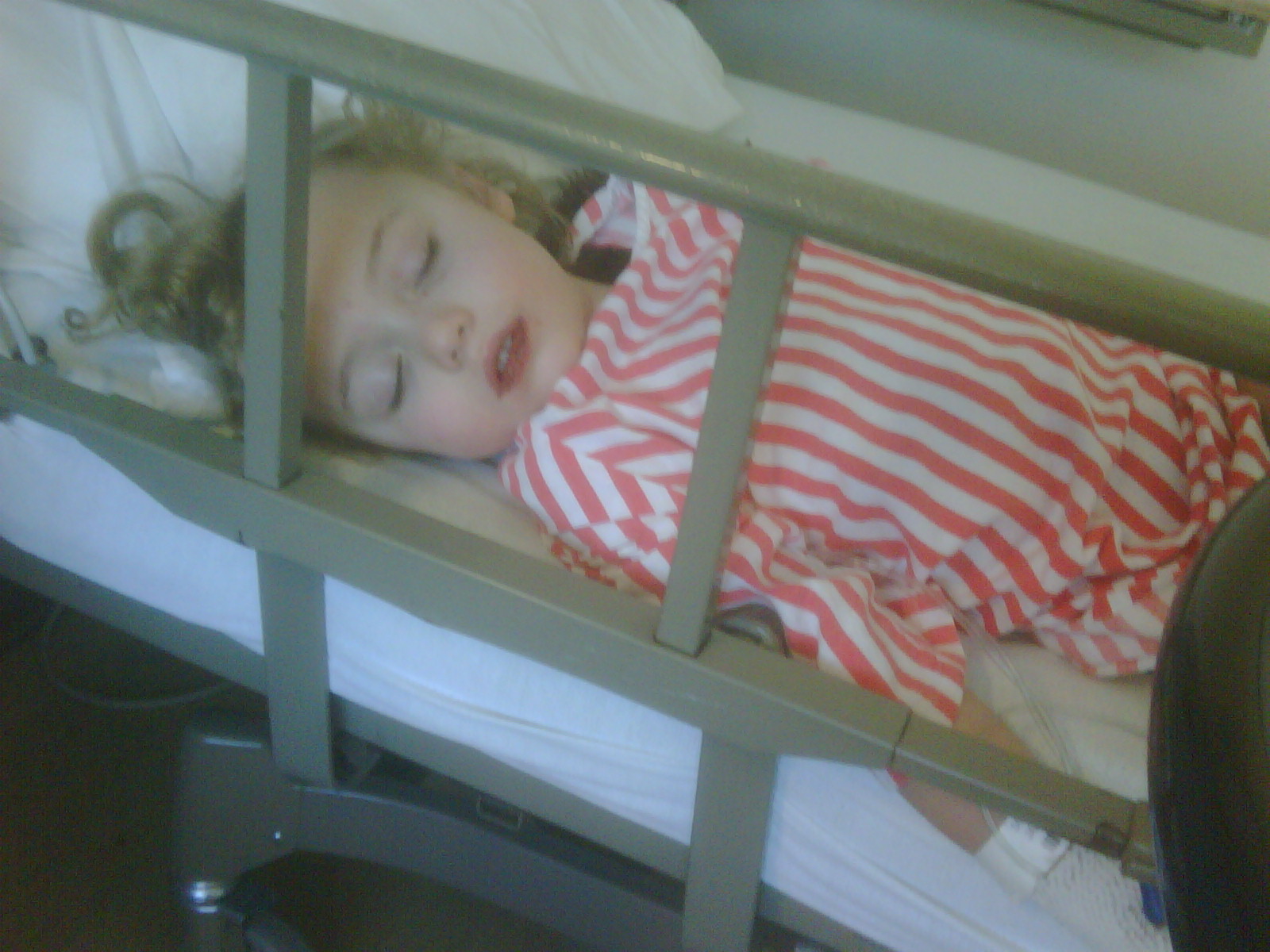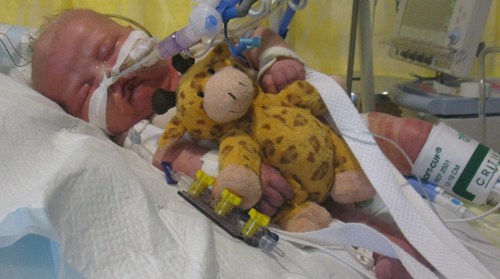 Several weeks ago, I got a letter in the mail from Toronto Public Health, informing me that if George’s vaccinations weren’t brought up to date, he would be suspended from school. There is a series of shots that he was due to receive when he turned six, and due to a number of logistical factors, including the retirement of our doctor and George’s phobia of anything medical, we just hadn’t gotten around to getting them. I called the number listed on the letter and spoke to a very nice lady who told me that the six required vaccinations could be administered with just two needles.
Several weeks ago, I got a letter in the mail from Toronto Public Health, informing me that if George’s vaccinations weren’t brought up to date, he would be suspended from school. There is a series of shots that he was due to receive when he turned six, and due to a number of logistical factors, including the retirement of our doctor and George’s phobia of anything medical, we just hadn’t gotten around to getting them. I called the number listed on the letter and spoke to a very nice lady who told me that the six required vaccinations could be administered with just two needles.
While two shots certainly seems more manageable than six, we have still not been able to get this done. Since our doctor retired, we have still not been able to get another one. There is a dire shortage of doctors in Ontario, much less doctors who are good with children who have autism. There is a walk-in clinic that we’ve gone to frequently enough for them to know us, and they do carry all of the vaccines, but it’s one of these first-come first-served places.
Jabbing needles into the arm of my child with autism is something that requires epic planning. We would have to find a doctor who we could make an appointment with. We would have to secure the very first appointment of the day to guarantee no waiting. We would have to prepare George, ourselves, and the staff at the doctor’s office. The whole thing would have to be done much like a military strike: go in, do what needs to be done, and then leave.
You can’t do that at a walk-in clinic. There, you show up and wait your turn, which could give your child up to two hours to have a complete meltdown and make dents in the drywall with his head (I ain’t kidding about that, by the way).
In between our phonecalls to locate a suitable doctor, we have been doing research on vaccines.
I should say at this point that I have never believed in the connection between autism and vaccines, and I still don’t. Whenever I admit this within my autism circles I create a bit of a stir, because it would seem that most people do not agree with me.
I would never presume to speculate on what does or does not cause autism in other peoples’ children, but looking back, I knew that something was not right with George from a very young age, before vaccines even entered the picture for him. If I were to guess at the root of the problem, I would say that it is a genetic roll of the dice combined with certain dietary elements.
Much to the horror of many parents (whether they have children with autism or not) I chose to vaccinate James even after I knew about George’s autism. That’s how much I do not believe in the vaccine/autism link.
So the research we have been doing is not from an autism angle. It is from a general health and wellbeing angle. Some vaccines apparently (depending on which websites you believe) contain potentially toxic ingredients that really don’t need to be there. These ingredients can do things like challenge the immune system and create a propensity to getting mild upper respiratory complaints.
And as convenient as it may be, we are debating the wisdom of administering three vaccines per needle, all in one session. That is a lot of stuff to be putting into the human body all at once. I’m no doctor, but I’m not sure that the human body is designed to be blasted in such a manner.
We fully intend to get all of George’s shots updated. We may just take our time and spread them out. It will involve more trauma for George, but there is a chance that it will be better for his long-term physical wellbeing. When James turns six, we will have to make the same decision for him.
In the meantime, while we are waffling around trying to decide whether to get George his shots, the Toronto Public Health deadline is upon us. With just two days to go until imminent suspension, we decided to apply for an exemption. We completed a Statement of Conscience, which basically says that we believe vaccinations are not the right option for us at this time.
It just buys us a little time to do this properly, without pressure bearing down on us.












